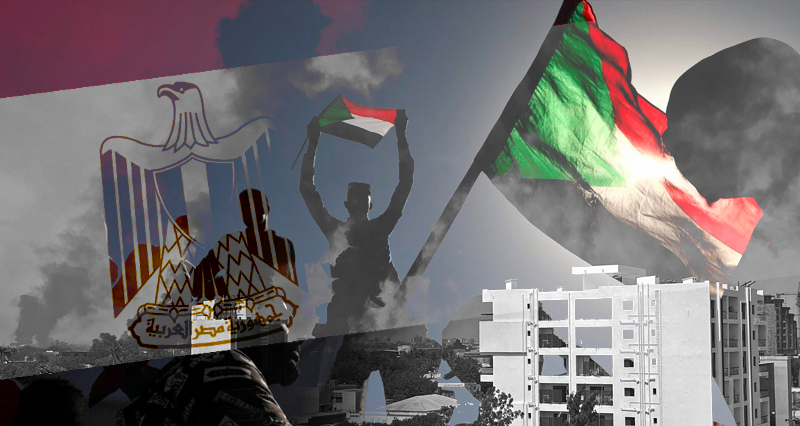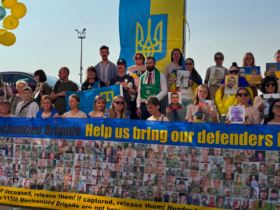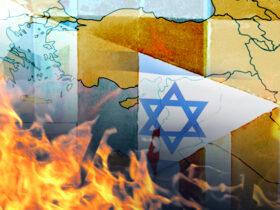The Rapid Support Forces’ capture of Egyptian soldiers, who were inside the Marawi military base, coinciding with the start of its attack on the Sudanese army’s facilities, represents an important entry point for understanding the nature of the Egyptian position on the conflict between the two major Sudanese military forces.
Although the Egyptian soldiers were present to participate in military exercises with the Sudanese army, what is left unspoken in the statements issued by the Supreme Council of the Armed Forces and the presidency in Egypt speaks of the restrictions that shackle Cairo regarding the exercise of any role in the neighboring country.
Complexity of calculations
Some believed at the time that the Egyptian authorities were anticipating any possible harm to dozens of their soldiers, who were taken hostage by the Rapid Support Forces to neutralize Cairo from siding with the Sudanese army.
However, despite the release of the Egyptian soldiers, Cairo’s position on the conflict remains neutral in a way that indicates the complexity of the decision-maker’s calculations or the limited influence.
According to an informed Egyptian source, the official position of Cairo is consistent with the international position, which calls for a cease-fire and the preservation of the unity and integrity of Sudan without bias for one party over the other.
The source noted that Cairo’s calculations are complex as it fears any error in calculations for political reasons.
Historical sensitivities
“The Egyptian position is not so much linked to limited influence as to the historical sensitivities of the Sudanese people regarding the intervention of Cairo”, he added.
Since Sudan chose independence from Egypt in 1956, politicians there have manipulated the issue of the relationship with Cairo by charging the Sudanese against Egypt for short-sighted political gains. With the successive ruling regimes in Cairo committing grave mistakes in this regard, the relations between the two countries went through stations fraught with sensitivities and mutual fears.
Despite the attempts of President Abdel Fattah al-Sisi’s regime to halt the deterioration in relations between the two countries during the reign of former Omar al-Bashir, with the latter ousting power, Cairo, the more inclined to support authoritarian regimes, found itself in front of a revealing position of limited influence in the neighboring country.
Egyptian absence
Indeed, Cairo was absent from the international efforts to support the democratic transition there, which reflects the limited Egyptian role in its southern neighbor, despite Egyptian support for the Sudanese army in the fields of security and intelligence cooperation between the two countries.
However, one observer confirmed that the Egyptian role in Sudan is limited due to Cairo’s biased position on the army during the political transition crisis.
The observer explained that Egypt has secretly supported the Sudanese army and its leader, Abdel Fattah al-Burhan, against the civilian forces over the past years, which created an incentive against any Egyptian interference in Sudanese affairs.
The informed source agreed with this opinion, pointing out that the historical sensitivities and the Egyptian biased position towards Al-Bashir and then Al-Burhan damaged Cairo’s chances of influencing the Sudanese issue.
“With the outbreak of conflict between the army and the Rapid Support Forces, Cairo had lost a lot of influence,” the source added.
The decline of Egyptian influence in the conflict appeared when there was no role for Cairo in the cease-fire between the two parties. It seems that the most important roles were for Saudi Arabia and the United States.
Overlap with the Gulf position
Nevertheless, former Assistant Foreign Minister Salah Halima defended the Egyptian position, and said that the Egyptian regime’s orientations with regard to Sudan support the Sudanese people’s choices and non-interference in internal affairs. He also referred to Egypt’s efforts to enhance mediation efforts and provide humanitarian aid.
While acknowledging the validity of the previous considerations, what most confuses Egyptian moves to play an active role in the Sudanese conflict is the overlap between the accounts of Cairo and those of the Gulf states, especially the UAE and Saudi Arabia, on whom Egypt relies to sell important assets and companies to provide dollar liquidity that it desperately needs to pay off its international obligations.
According to many analysts, the UAE plays an important role in supporting the Rapid Support Forces led by General Muhammad Hamdan Dagalo (Hemedti), in light of the roles he plays in serving the UAE’s interests inside Sudan.
Saudi Arabia is trying to stop the conflict slipping into a war without end, which threatens the security of the Red Sea coasts, which represent the future for Saudi Arabia’s promising projects. While it is trying to do so, it rejects a decisive victory for Hemedti that enhances the UAE’s geopolitical weight in the region, but it does not want to sacrifice it at all.
As for the Egyptian interest, it is summed up in the existence of one authority and one stable state supported by the army, to ensure effective coordination with Khartoum to keep Egypt’s strategic interests, not the least of which is coordination with regard to the Renaissance Dam that Ethiopia is building on the Nile River.
Geopolitical competition
Among the complications confusing the Egyptian position is that the conflict has turned into an arena for geopolitical competition between the United States and other powers such as Russia and China.
According to the informed source, the dispute between Al-Burhan and Hemedti extended to many issues, including allowing the establishment of a Russian military base on the Red Sea coast. Al-Burhan was more inclined to reject, taking into account the Egyptian and American concerns and fears, in contrast to Hemedti’s position.
While Cairo seriously wants a quick cease-fire, Washington seems to be pretending to be seeking it.
Washington has a lot of pressure cards on the active regional actors in the Sudanese scene, but it seems to be preparing the international community for the length of the conflict, which creates a state of liquidity that drains all players and enables it to maneuver behind the scenes.
According to one observer, the executive order issued by Washington imposing sanctions on individuals responsible for threatening peace and stability in Sudan ignores the fact that the conflict is nothing more than a proxy war in which local disagreements are used as pretexts.
The observer pointed out that the United States is unwilling to come to terms with regional and international players at the present time until such time as the required trade-offs can be made, which will inevitably be linked to other conflicts between those countries on the geopolitical map.
“Washington understands that the decision to stop the war is not in the hands of the local players”, he added.

















Leave a Reply